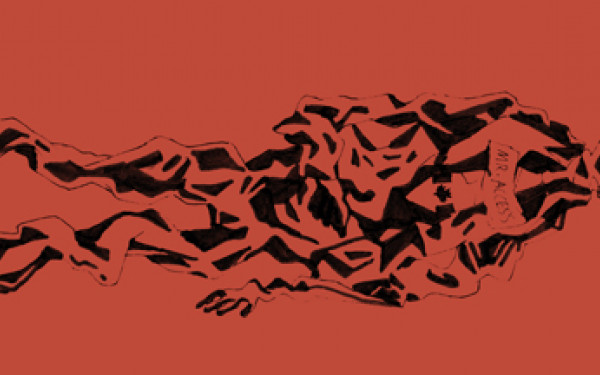The 21st Century is Here—But Have Quebec’s ATI Laws Caught Up?
Panel Debates Government Transparency and Access to Information
A panel of government officials, journalists and activists debated government transparency and the right to information Feb. 4 at Concordia’s Samuel Bronfman House.
“The failure of federal and provincial government to move toward greater access to information is born from [a disagreeing] attitude of mind,” said Concordia journalism professor Alan Conter to an audience of about 40 people.
“What guides the thinking is an attitude of mind rather than a set of written rules,” continued the media law and ethics professor. “The commissioners generally want greater improvements, yet are powerless to draft new legislation.”
The panel was organized by Concordia’s School of Community and Public Affairs to discuss the public’s access to information from the government.
Quebec’s Access to Information Act was voted into law in 1982, and since then all other provinces and territories have adopted similar ATI legislation.
Since its inception on the national level, the Supreme Court of Canada has declared freedom to information to be a fundamental part of one’s right to freedom of expression, protecting it under the Canadian Charter of Rights and Freedoms.
Under federal law, the right to information is balanced with an individual’s right to privacy and each request is examined on a case-by-case basis.
Yet, with 30 years having passed and the state of collection and distribution of information having shifted so radically in the wake of widely available information on the Internet, there have been calls in recent years to renew and strengthen ATI legislation.
According to Conter, the calls from journalists and advocacy groups to reform the legislation have been steadily increasing over the past few years.
Teresa Carluccio, administrative judge for the Commission d’accès à l’information du Québec—the provincial access to information tribunal—says that every year there are over 1,000 applications made to the Commission alone.
She says that according to the law, every person in Quebec has the right to demand the government for public documents, regardless of citizenship status.
Public documents are defined as any piece of information, whether words, sound or images, that have been created, collected and stored by the Quebec government.
But Jonathan Brun, co-founder of Montreal Ouvert, a citizen’s action group that has successfully lobbied the Montreal city government to launch an open-data policy, says the inflexibility of the current legislation hinders the citizenry from being informed.
Also, since the provincial ATI legislation has largely remained unchanged since 1982, Brun asserts the laws need to be revamped in order to get them in line with the pillars of the digital age: open and shared information routed across the World Wide Web.
But Mike de Souza, a reporter specializing in energy, environment and infrastructure issues who was laid off by Postmedia News as a national political correspondent the day before the panel event, says the web hasn’t entirely changed things for the better.
“In the past, if you asked an official a hard question, they would be pressured to answer on the spot,” he said. “With the Internet, one can now reply, ‘Can you send that to me in an e-mail?’
“In this way more questions from journalists are ignored.”
According to De Souza, from the federal government’s sanctioning of the tar sands, to climate change and the factors leading up to the Lac-Mégantic distaster, ATI requests were able to shed light on the real truth.
“We wanted to know: What happened at Lac-Mégantic? Through the ATI, we found that there was a directive in certain departments to ignore access to information requests, recommending to focus on other issues.”
However, De Souza echoed other panellists in calling for updates to ATI legislation, explaining that often even when requested under ATI the truth is still easily concealable under the current legal framework.
“Typically, when the government doesn’t wish to reveal something, they say that the matters are ‘under consultation’ or a matter of national security,” he said.

_900_600_90.jpg)


WEB_600_375_90_s_c1.jpg)
2_600_375_90_s_c1.jpg)
